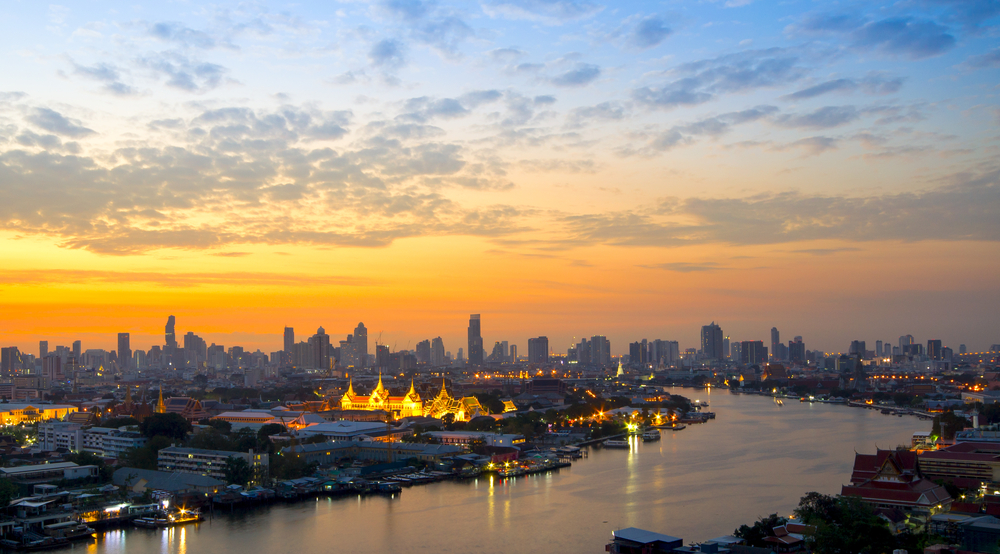Thai economy, slated to grow 2.8% to 3.5% this year
Meanwhile, tourism has been recovering faster than expected

The Joint Standing Committee on Commerce, Industry and Banking (JSCCIB) recently announced that the Thai economy is still slated to expand 2.8 to 3.5 percent this year. This is on the back of increased exports, boosted tourism, and government support.
Exports are projected to grow six to eight percent this year, up from the previously set five to seven percent, according to VietnamPlus. The committee expects seven to eight million international visitors this year as well.
Asserting Thailand’s macroeconomic situation has a positive trend, Prime Minister Prayut Chan-o-cha forecasts 3.3 percent growth in 2022 and 4.2 percent in 2023. He added that the country’s financial situation is stabilised by disciplined monetary and fiscal policies, which reflects the influx of foreign investors in the country.
Meanwhile, tourism has been recovering faster than expected, reported Bloomberg. The number of international visitors as of late is putting the country’s economy on the path to returning to pre-pandemic levels by next year.
More: Thailand prepares to welcome more tourists from Malaysia and India starting 1 July
Despite soaring inflation, the tourism-dependent nation has eased business and travel restrictions and waived visa requirements to attract international travellers. The number of foreign visitors is expected to reach 19 million by next year.
“We have so much optimism in our economic outlook as the rebound in international tourism has been much faster than we expected,” said Prayuth.
Since the start of July, travellers are no longer required to apply for a “Thailand Pass,” which was introduced in May, according to Thai PBS World. The day after it was scrapped, tourist arrivals grew 20 percent to Phuket International Airport. On the same day, more people crossed into Thailand at checkpoints along the Malaysian and Laos borders.
The Property Report editors wrote this article. For more information, email: [email protected].
Recommended
Why everyone is moving to Selangor and Johor: Malaysia’s real estate comeback
Malaysia’s upturn in fortunes is especially prevalent in secondary destinations such as Selangor and Johor
Penang’s silicon boom: How the US-China tech war is supercharging local real estate
Penang’s booming semiconductor industry has created ripples within the local real estate sector
New leader, new opportunities: How Hun Manet is shaking up Cambodia’s real estate game
Hun Manet is overseeing decent economic growth and widening access to the country’s real estate market for foreigners
Singapore embraces inclusive housing reforms amid resilient demand
The Lion City’s regulatory strength continues to exert appeal for international investors








